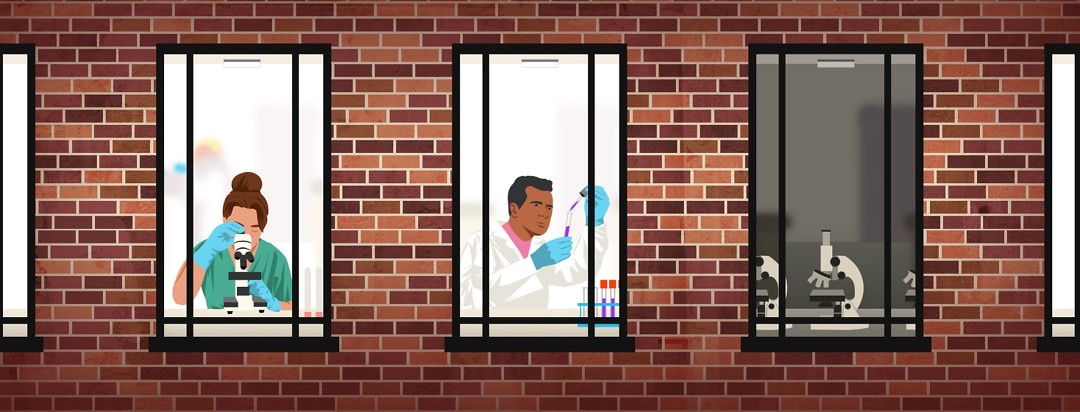Research for Alzheimer's Drug, Solanezumab, Not Moving Forward After Failed Results
Drugmaker Eli Lilly and clinical researchers recently stopped a nationwide clinical trial that was testing the drug solanezumab, a medicine that had shown some promise against Alzheimer’s disease. After analyzing results from a large phase III clinical trial, researchers did not see a meaningful difference in peoples’ mental functioning because of the drug, so they decided to stop the trial.1
What is Alzheimer’s?
Worldwide, more than 50 million people suffer from Alzheimer’s disease or other forms of dementia.2 People with dementia experience memory loss, confusion, and difficulty thinking.
With Alzheimer’s, people generally have symptoms of dementia as well as abnormal deposits of two different kinds of protein in their brain. These proteins are supposed to be found in the brain, but in Alzheimer’s they group together in clumps to form what doctors and researchers refer to as plaques and tangles.3
There is currently no cure for Alzheimer’s. There are a few medicines that can treat some symptoms of memory loss and confusion. But generally, Alzheimer’s is a progressive disease, which means that it gets worse over time.3
Research ongoing to find treatment
Because Alzheimer’s affects so many people, there is a lot of research underway aimed at identifying drugs that can prevent, slow, or cure the disease. Researchers are searching for many different kinds of drugs that act in various ways to protect the brain against Alzheimer’s. The idea behind some of the drugs in development is that they can attack or slow the growth of the distinctive plaques and tangles that collect in the brain when you have the disease.
Understanding clinical trials
Clinical trials are experiments that are important for discovering medicines that improve or cure disease. Clinical trials are conducted through a series of phases that help people understand if a potential medicine works, is safe to take, and helps cure the disease in question:4
Phase I trials
Very small trials to test if a potential drug is safe for people to take. These studies generally enroll healthy volunteers.
Phase II trials
Trials of more people with a disease to see if the potential drug might work against the disease and to calculate an effective dose. These studies often do not include enough people to make conclusions about how well the drug works.
Phase III trials
These trials enroll hundreds to thousands of volunteers, often across the country or the world. Phase III trials are usually the most important in determining if a drug is safe and effective. Both are required before a drug can receive Federal Drug Administration (FDA) approval.
Because drug development takes so long, requires so many phases, and involves thousands of participants and multiple clinical settings, it is very expensive and time-consuming. It is common to find substances that work well against disease in the laboratory but then doesn’t work in the body. Or substances that seem to work when you study a small group of people, but fail when you look at a larger group.
When you have a disease and follow research and clinical trials closely, it can be very disappointing to see a promising drug fail in clinical trials. However, the process is designed to be objective and to allow researchers to discover the most effective drugs against a particular disease.
Details of the solanezumab trials
Solanezumab was designed to attack the beta-amyloid proteins that build up in the spaces between nerve cells and form plaques. Researchers had hoped that disrupting the proteins that form plaques might help slow or reverse Alzheimer’s symptoms for people with the disease.
The study that was stopped was known as the Expedition III study. Researchers started it thanks to the results of an earlier study of solanezumab among people with more advanced Alzheimer’s (a stage known as mild-to-moderate Alzheimer’s.) That study did not help people with more advanced disease, but there was a hint that it might help people in earlier disease stages.5 The goal of Expedition III was to see if that was true.
Expedition III enrolled more than 2,100 people with mild Alzheimer’s disease and administered 400 mg. of solanezumab every 4 weeks to half of the people. The other half got a placebo, which is an inactive substance that looks like the test medicine and is given the same way. Disappointingly, after 80 weeks, there was no meaningful difference in thinking or in memory between those who received the medicine and those who received the placebo.1
Solanezumab still under study
Even though solanezumab has failed a few studies and does not appear to help people with early or mild-to-moderate Alzheimer’s, it is still being studied in other ways. For example, the Anti-Amyloid Treatment Asymptomatic Alzheimer’s (A4) study is designed to see if solanezumab might prevent Alzheimer’s among older adults who are at risk for Alzheimer’s but do not have memory loss or problems thinking. Each person will either get a placebo drug or the study drug and have monthly visits over four and a half years, the length of the study.6

Join the conversation